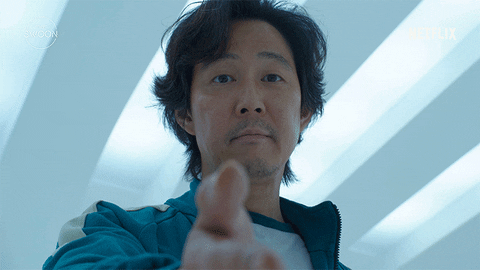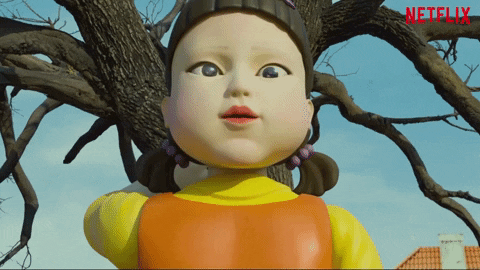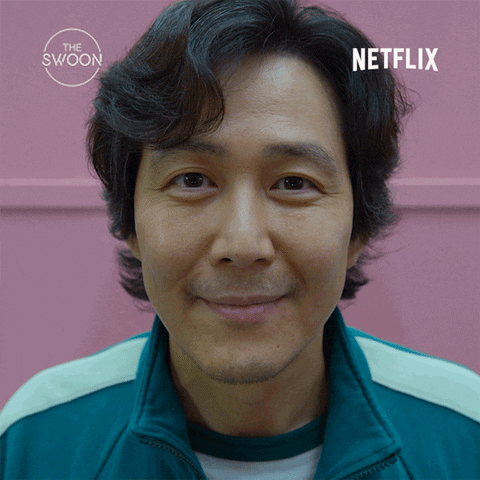Squid Game: Satire on the impact of capitalism on our society? 🤑
What is Squid Game? Underlying themes of Squid Game + 2nd episode of the podcast
Hi, Ravdeep here. 👋
Perfunktory is a newsletter that aims to break down trending subjects in the field of Music, Technology, Gaming and Culture as perfunctorily as possible. We also have a podcast in the works which can be found here on Spotify, Apple Podcastsand Google Podcasts.
Sign up below for free.👇
Welcome back to the Perfunktory newsletter after a short break. As this newsletter and podcast is still very much a one-man operation, if I fall sick, the whole system stops. But to counter this in the future, I am going to keep a bank of written material and recorded podcasts which I can post in situations such as these. 🤓
Facebook ended up changing their name to ‘Meta’ and the podcast episode which I did on the Metaverse blew up. If you still haven’t checked it out, I am going to link it below.
What’s The Hype with the Metaverse?
Apple Podcasts: Click Here
Google Podcasts: Click Here
Almost every person that you know of has seen Squid Game and the show definitely deserves the hype it has got. But a lot of people missed out on the underlying themes of the show and how it is an allegory* about modern capitalist society. Of course, this issue will have potential *spoilers* from the show so please check back once you’ve seen it. Let’s jump into it!
*Allegory: a story, play, picture, etc. in which each character or event is a symbol representing an idea or a quality, such as truth, evil, death, etc.
What is Squid Game? 🦑
Squid Game is a South Korean survival drama television series on Netflix created by Hwang Dong-hyuk, who wrote and directed all nine episodes. The series revolves around a contest where 456 players in deep financial debt put their lives at risk to play a series of children's games for the chance to win a ₩45.6 billion prize. The title of the series draws from a similarly named Korean children's game. Hwang had conceived of the idea based on his own economic struggles early in life as well as the class disparity in South Korea. Though he had initially written it in 2009, he was unable to find a production company to fund the idea until Netflix took an interest around 2019 as part of their drive to expand their foreign programming offerings.
Squid Game was released worldwide on September 17, 2021, to critical acclaim and international attention. Attracting more than 142 million member households during its first four weeks from launch, it is Netflix's most-watched series to date, surpassing 2020's Bridgerton.
Underlying themes of Squid Game 🤑
→ Extreme Competition of life
Hwang Dong-hyuk said he was inspired to write an allegorical story about modern capitalism as well as “something that depicts an extreme competition, somewhat like the extreme competition of life.”
The show follows the main character and several others who are in dire need of money. 456 contestants are kidnapped and taken to a mysterious island, where they’re forced to play a series of children’s games. Losing a game results in a gruesome death, while making it to the end earns you a cash prize. This can be a take on the extremely competitive lives that we lead, constantly trying to one up our peers, all because of our society telling us that if we do not, we will get left behind or as per the show, face a gruesome end.
→ Hustle Culture
The capitalist society that we live in today encourages us, if not demands us, to spend every minute of our lives working. Those who refuse to take part in this charade are not only dubbed as ‘lazy’ but there will always be someone waiting to replace them, willing to work extra hours that the other person might not agree to.
"Hustle culture" cultivates toxic competition among employees the same way the 456 contestants are pitted against each other. Only the crafty, lucky, and most desperate survive.
→ Impact of Capitalism on Human Lives
The players in the show are told that the grand cash prize increases after each game. However, what they are not told directly is that they would be paying for the prize with their lives. Each contestant is worth ₩100 million, so for each death that happens in the game, the pool grows by that much amount.
In the show, we get to know that the main character bets on horse races because of a gambling addiction. Towards the end of the series, the Front Man tells him, “You bet on horses. It's the same here, but we bet on people." "Squid Game" takes a strong stance against the way society's "elites" play with the lives of ordinary citizens, and how they are often face little to no repercussions for their actions.
It's well known that these systems benefit those who are deemed more "valuable," such as the rich and educated, or those of a specific race and gender.
→ No one is truly safe
We are introduced to several characters in the beginning of the show like Gi-hun who steals from his moths and struggles to financially support his daughter. We also come across Sae-byok, who is a North Korean defector needing money to rescue her family. We get to know more about Ali, who moved to Korea in hopes of providing for his young family but ended up being exploited for free labour. "Squid Game" introduces these characters first to play into the tone-deaf notion that the poor are always "irresponsible," or simply "unlucky."
But this notion is quickly turned around when we are introduced to Sang-woo who graduated from a top business school and went on to pursue a career in investments but got caught up in scams and embezzlement. That’s the true message of the show, life can quickly sour for just about anyone.
Even those who live comfortably can find themselves in dire straits, and there's little they can do to fix it. Considering how many lives have been uprooted amid the pandemic, it makes perfect sense as to why the show's resonated with so many viewers.
→ Wealth Gap
Towards the end of the series, it is revealed that the host of the games is an absurdly rich man who put on the games so he and other people with too much money could have some amusement. The gigantic chasm of wealth between the competitors and the people funding the games helps illustrate the heartless nature of capitalism taken to extremes. It also reflects South Korea’s own wealth gap, something central to one of South Korea’s most widely acclaimed films ever, Parasite (2019).
→ Discrimination
When people are put into life or death situations, self-preservation can reveal prejudices that might not otherwise be seen. The characters surrounding Gi-hun come from diverse backgrounds, and many of them are subjected to discrimination at some point. Whether it’s gender, age, ethnicity, or nationality, the games reveal an ugly side of society while giving insight into the true characters of the people who do and don’t engage in such comments and actions.
While these are only some of the major underlying issues and themes of Squid Game, I am sure there are many other small bits here and there which give a lot of character to this series.
Hands down, it’s been one of my favourite shows this year. The music, art direction, acting, pacing - all of these have been executed brilliantly. I will be posting a follow up to this issue on our Instagram and Twitter covering the influences behind Squid Game, so do follow us there to stay up to date. There will be two podcast episodes this week! 🤞
Recommended reading this week


Recommended viewing this week
This entire 6 part series by Coffeezilla and SomeOrdinaryGamers on Roobet and offshore casinos.
Thank you and have a brilliant week ahead. Would be great if you could share the newsletter with your friends and family as that helps a lot and hit that little heart button!





